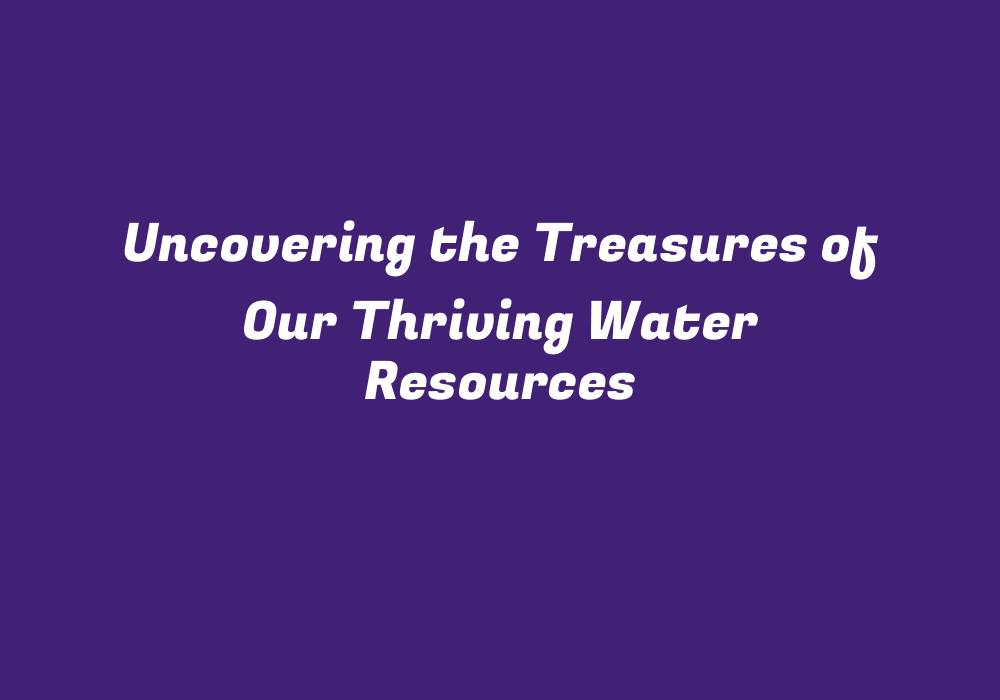Introduction
Water, a precious resource that covers 71% of our planet’s surface, plays a vital role in supporting life on Earth. Despite this fact, we often overlook the significance of water resources and their immense potential for societal benefits. In this article, we aim to unveil the treasures hidden within these thriving water sources by exploring various aspects such as ecosystem services, economic opportunities, and environmental conservation.
Ecosystem Services
Water resources not only quench our thirst but also provide a myriad of vital services for the ecosystem. These ecosystem services can be grouped into four categories: provisioning, regulating, supporting, and cultural. Provisions include water as food (fish), drinking water, and energy generation via hydropower. Regulation encompasses flood control and mitigation of droughts, while support services involve nutrient cycling and soil formation. Lastly, cultural services cover recreational activities like fishing, boating, and swimming that foster a sense of well-being.
Economic Opportunities
Besides catering to the fundamental needs of life, water resources also offer immense economic opportunities. Agriculture is one of the primary sectors that benefit from abundant water supply. The efficient use of this resource enables farmers to boost crop yield and improve irrigation efficiency. Moreover, it plays a vital role in managing water scarcity during droughts or excessive rainfall.
Furthermore, water resources contribute to the development of tourism infrastructure, as well as enhance ecosystem services like recreational activities. Tourists flock to water-rich regions for various outdoor and leisure activities such as boating, swimming, scuba diving, snorkeling, fishing, and birdwatching.
Water Resources in Urban Areas
Cities are also heavily reliant on water resources to maintain their basic functioning. They require clean water for drinking, sanitation, industrial processes, and the maintenance of green spaces within urban environments. In addition, water supplies can be managed in ways that minimize environmental impacts through wastewater treatment systems and stormwater management plans.
Environmental Conservation
Water resources play a critical role in biodiversity conservation, as they provide habitats for numerous species of plants and animals. By preserving these habitats and maintaining the health of water bodies, we can protect threatened ecosystems and foster sustainable development. Moreover, conserving wetlands and riparian areas contributes to carbon sequestration, helping mitigate climate change impacts.
Conclusion
Water resources are an essential part of our lives and their effective management can lead to a better quality of life. By understanding the benefits they provide in terms of ecosystem services, economic opportunities, and environmental conservation, we can work towards maintaining and preserving these vital resources for generations to come.
About the Author
Jane Smith is an environmental activist and writer with extensive experience in water resource management. Her passion lies in raising awareness about the importance of sustainably managing our planet’s water resources and exploring innovative ways to ensure that this precious asset continues to support life as we know it.
